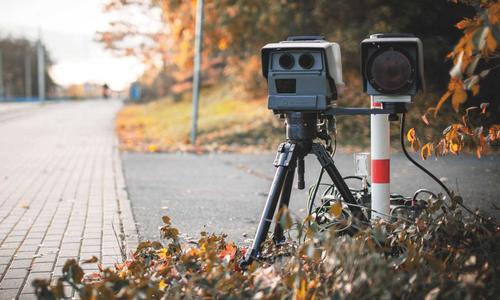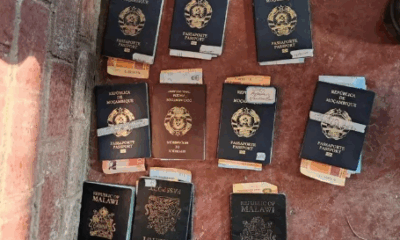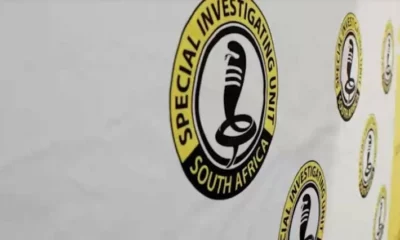News
‘Aarto Means Cold Drinks’: Fears of Bribery, Chaos and Licence Suspensions as Rollout Nears

South Africa’s Road Gamble: Can Aarto Really Fix Our Traffic Crisis?
In township slang, “Aarto” has already earned a nickname: “cold drinks” – a nod to the bribes many fear will skyrocket once the new Administrative Adjudication of Road Traffic Offences (Aarto) Act comes into full effect.
With just weeks to go before its phased rollout, motorists, experts, and even some traffic officers warn that the demerit system, meant to instil discipline on our chaotic roads, could instead unleash fresh corruption and administrative paralysis.
From Seatbelts to Suspension
Here’s how the new system is meant to work:
-
Each traffic offence carries a set number of points, from minor seatbelt slips to reckless driving.
-
Rack up more than 15 points and your licence is suspended.
-
Do it twice, and you face permanent cancellation.
-
Drive safely for three months, and you claw back a single point.
On paper, it sounds fair, a balance between punishment and second chances. But on South African roads, where cloned plates, fake licences and unroadworthy taxis zip past with impunity, critics say the system isn’t rooted in reality.
‘We’re Paid Peanuts’ Officers Speak Out
Several traffic officers, speaking anonymously, admitted they expect motorists to start offering bribes rather than risk losing their licences.
“Before, people would just pay the fine and move on,” one officer said. “Now, even if you pay, you lose points. Eventually, you lose your licence. Desperate people will take shortcuts and many of us survive on these so-called shortcuts.”
This isn’t paranoia. Just last year, 11 officers were arrested in Polokwane for allegedly pocketing bribes on the N1. Social media users joke that Aarto will turn every roadblock into an ATM.
The Paperwork Trap
The Road Traffic Infringement Agency (RTIA) has quietly started enforcing long-ignored provisions of the law since December 2024, issuing proper notices for the first time in years. Motorists who ignored old fines may suddenly find themselves blocked on the NaTIS system when trying to renew licences.
Cornelia van Niekerk, head of Fines4U, a company managing fines for fleets and motorists, warns that companies can no longer absorb drivers’ fines. Every fine now follows the driver and their points. “People are going to be very surprised,” she says. “NaTIS will stop them cold.”
History Repeating Itself?
If this sounds familiar, it should. The failed e-toll system promised order, but collapsed under inefficiency and public resistance. Critics like the Organisation Undoing Tax Abuse (Outa) fear Aarto will go the same way.
Outa’s CEO, Wayne Duvenage, says the demerit system works abroad, but only in countries with accurate databases, visible policing, and airtight enforcement. “In South Africa,” he argues, “you can still drive without a licence, on cloned plates, or in an unroadworthy car and get away with it. A system like Aarto requires impeccable efficiency. We simply don’t have it.”
The Bigger Picture, Lives at Stake
South Africa’s roads are among the deadliest in the world. Stats SA reports over 6,600 road deaths in 2016, and the numbers have not improved. The government signed onto the UN’s 2030 Agenda, pledging to halve road deaths by 2030.
Aarto is supposed to be part of that solution, moving traffic enforcement from criminal charges to a streamlined administrative process. But if corruption, inefficiency, and lack of public trust undermine it, will it really save lives?
Public Mood: Frustration and Fatalism
On Twitter (now X), many motorists call Aarto a “cash cow,” designed less for safety and more for squeezing citizens. Others point to the irony: while ordinary drivers face points for speeding, high-ranking politicians’ blue-light convoys barrel through highways unchecked.
“Until cops stop drinking bribes instead of stopping drunk drivers, Aarto will just be another e-toll,” one post read, echoing a sentiment that’s fast becoming common.
Cold Drinks or Cold Reality?
For all the warnings, Aarto will go live in 69 municipalities from December, with full rollout expected nationally by April next year. The demerit system itself kicks in from September.
If it succeeds, it could change road culture in South Africa forever. If it fails, it risks becoming another expensive, corruption-riddled policy casualty.
For now, motorists are left weighing their odds, pay the fine, fight the system, or buy a “cold drink” on the side of the road.
{Source: The Citizen}
Follow Joburg ETC on Facebook, Twitter , TikTok and Instagram
For more News in Johannesburg, visit joburgetc.com



























